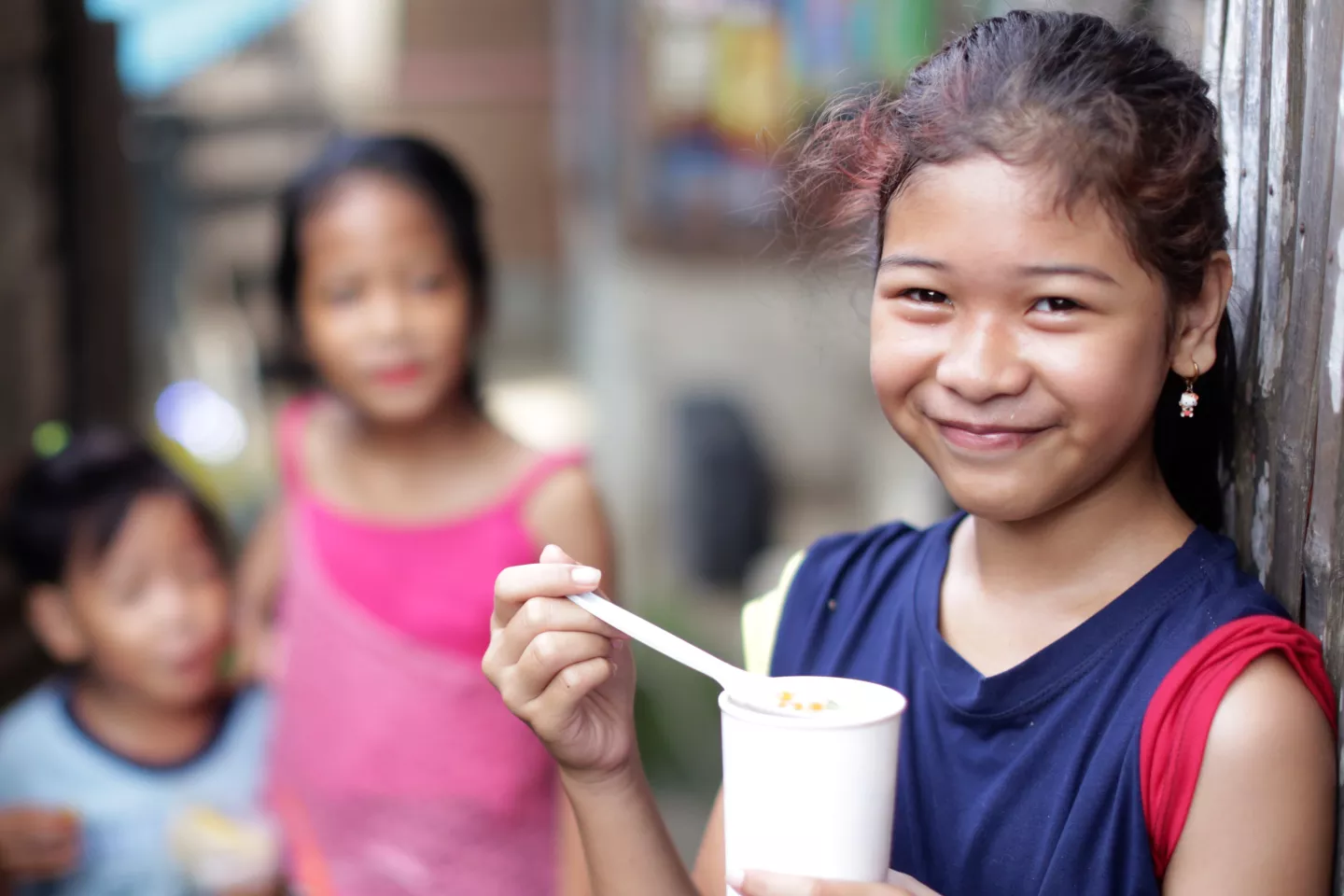MANILA, July 6, 2023 – In commemoration of this year’s National Nutrition Month, the Department of Health (DOH), National Nutrition Council (NNC) and UNICEF Philippines called for healthier and more affordable diets for children and their families.
In the Philippines, about a third of households cannot afford healthy food for their children. The 2021 Expanded National Nutrition Survey (ENNS) showed that 33.4 percent and 2 percent of Filipino households suffer from moderate and severe food insecurity, respectively. When someone is moderately food insecure, they don’t have enough money to eat a healthy, balanced diet, whereas someone who is severely food insecure has gone a day or more without food. In addition to not being able to afford healthy foods, unregulated and excessive marketing to adults and children push them to choose cheaper, easier to cook but unhealthy foods.
The ENNS also reported that only 13.8% of children aged 6 to 23 months received the minimum acceptable diet for optimal growth and development. As food prices continue to rise and economic challenges persist, making healthy diets affordable is critical to combat malnutrition that affects 26.7 percent or 3.2 million Filipino children. This is particularly serious in areas like the Bangsamoro Autonomous Region in Muslim Mindanao (BARMM), where 39.1 percent of children are stunted.
“When people can afford nutritious foods and healthy diets, they are more likely to stay healthy, which improves productivity, educational achievement and overall socio-economic well-being. Adequate nutrition is crucial during critical periods like early childhood, when a good diet promotes optimal physical and cognitive development,” said Assistant Secretary Dr. Azucena Dayanghirang, Executive Director of the NNC.
The 49th Nutrition Month focuses on the theme “Affordable Healthy Food for All” to improve access to affordable and nutritious food for families, especially children. The Philippine Nutrition Action Plan 2023-2028, which will be launched during Nutrition Month, strengthens its food security component by promoting consumer demand for healthy diets and strengthening the implementation of interventions aimed at to improve access to adequate, age-appropriate, nutrient-rich, diversified, safe and sustainable nutrition.
UNICEF has helped address the triple burden of malnutrition in the Philippines by undertaking research on child nutrition, strengthening nutrition interventions in communities and during emergencies, and developing policies, standards and services that improve the availability and affordability of nutritious foods in schools and communities. UNICEF advocates for healthy food environments that can provide children with adequate nutrition, space to play and exercise, access to clean water, sanitation and financial security.
“Every child has the right to adequate nutrition. Good nutrition is the basis for child survival, growth and development. Children are better able to learn, play and participate in the life of their communities and can better overcome illness and crises if they are well nourished,” said Malalay Ahmadzai, Chief Health and Welfare Officer. UNICEF nutrition in the Philippines.
